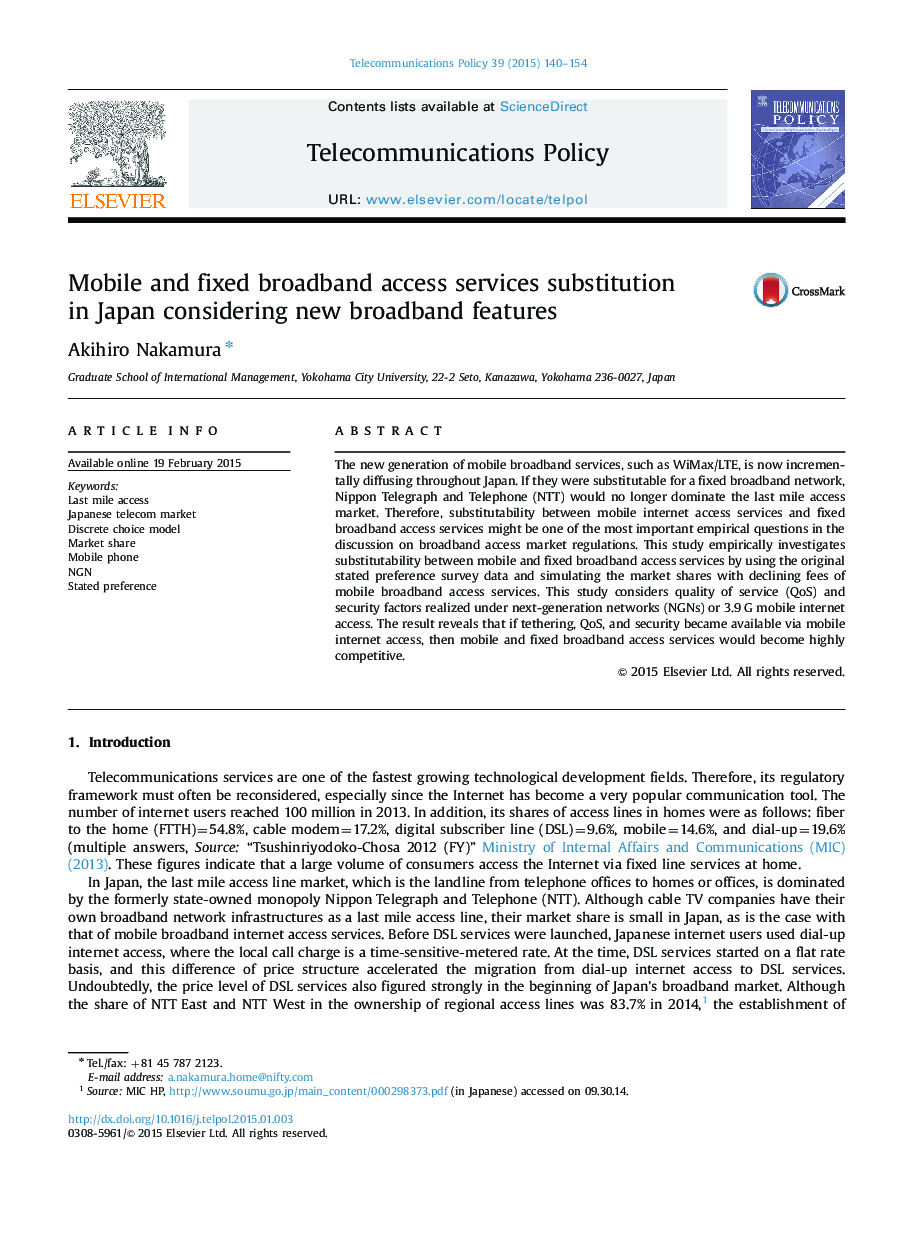| Article ID | Journal | Published Year | Pages | File Type |
|---|---|---|---|---|
| 556640 | Telecommunications Policy | 2015 | 15 Pages |
This study empirically investigates substitutability btween mobile and fixed broadband access services by using the original stated preference survey data and simulating the market shares with declining fees of mobile broadband access services.•This study considers quality of service (QoS) and security factors realized under next-generation networks (NGNs) or 3.9G mobile internet access.•The result reveals that if tethering, QoS, and security became available via mobile internet access, then mobile and fixed broadband access services would become highly competitive.
The new generation of mobile broadband services, such as WiMax/LTE, is now incrementally diffusing throughout Japan. If they were substitutable for a fixed broadband network, Nippon Telegraph and Telephone (NTT) would no longer dominate the last mile access market. Therefore, substitutability between mobile internet access services and fixed broadband access services might be one of the most important empirical questions in the discussion on broadband access market regulations. This study empirically investigates substitutability between mobile and fixed broadband access services by using the original stated preference survey data and simulating the market shares with declining fees of mobile broadband access services. This study considers quality of service (QoS) and security factors realized under next-generation networks (NGNs) or 3.9 G mobile internet access. The result reveals that if tethering, QoS, and security became available via mobile internet access, then mobile and fixed broadband access services would become highly competitive.
